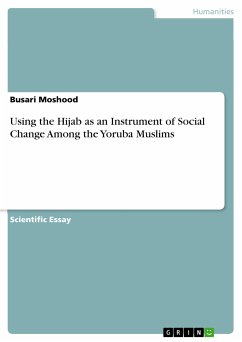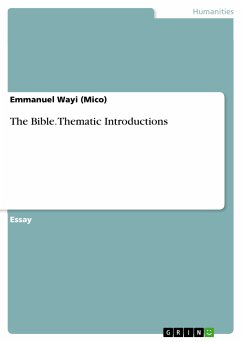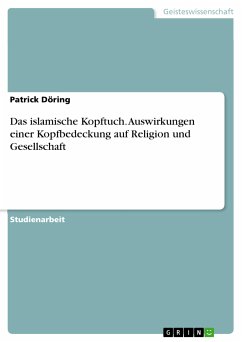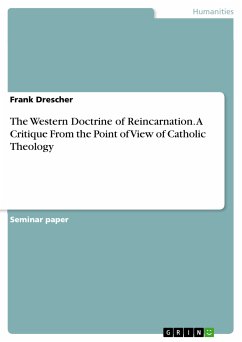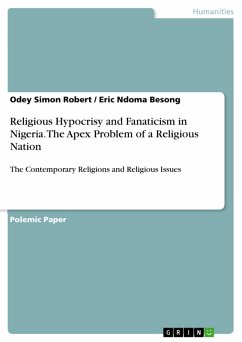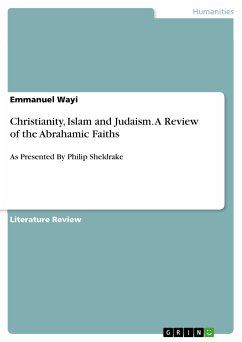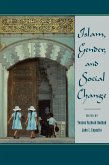Scientific Essay from the year 2017 in the subject Theology - Islamic theology, , course: LANGUAGES SECTION, language: English, abstract: The concept of change has, of recent, become a mantra echoed in all areas of life in this part of the world. The reason for this development could be hinged on the emphasis laid on different aspects of change by various theoretical schools like that of Marxist. Thus, as a social change evolves from a number of different sources, this paper aims at examining the Hijab as an instrument of change among the Yoruba Muslims. This will take into accounts, various controversies that trail the use of Hijab in the Muslims folk and pragmatically unveil its inherent values which could be explored to enthrone a change in the social system of especially the Yoruba Muslims. Purposive sampling technique will be used in selecting twenty-five (25) Muslims-scholars and non- scholars for interviews, from eight notable Muslim organizations of Zumrah al-Mu'minin, Izalatul-Bid'ah wa Iqamatus-Sunnah, Tabligh Brotherhood, Muslim Students' Society of Nigeria (MSSN), The Muslim Congress (TMC), Ta'awun al-Muslimin, Tijaniyyah and Qadiriyyah Sufi Orders, on some social related issues on the Hijab. The data will be analyzed quantitatively using the Qur'an and Hadith. In this respect, the relationship between the Hijab and virtues such as humility, trustworthiness, chastity and bashfulness among other social values will be critically juxtaposed vis á vis the Hijab as an Islamic emblem and its inmates as agents of social change in the context of this paper. The concluding part of the study will discuss the findings of the research with the aim of addressing the difference between the reality of the divine injunctions governing the use of Hijab and any conceived deviation and disparity in the practical utilization of the Hijab by female Muslims, which may hitherto result in a generalized negative impression on the Hijab itself and its users. This analysis will be used as a premise for establishing the instrumentality of the Hijab in the crusade of a social change in Yorubaland in general and among the Yoruba Muslims in particular.
Dieser Download kann aus rechtlichen Gründen nur mit Rechnungsadresse in A, B, BG, CY, CZ, D, DK, EW, E, FIN, F, GR, HR, H, IRL, I, LT, L, LR, M, NL, PL, P, R, S, SLO, SK ausgeliefert werden.

